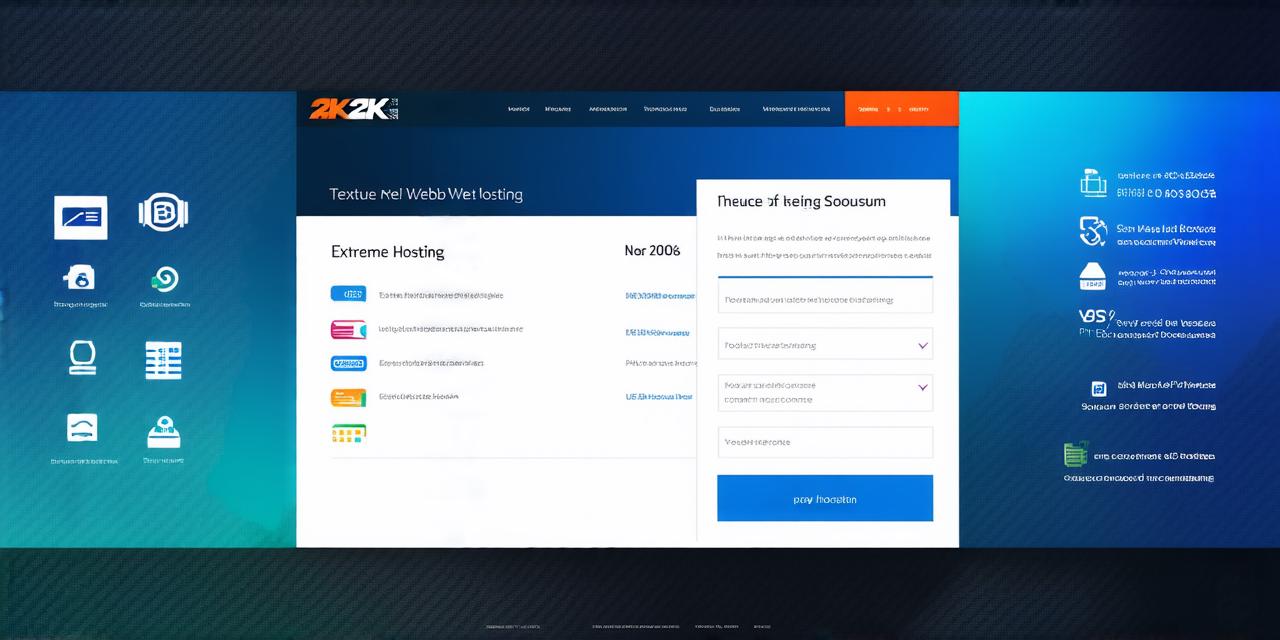1. Shared Hosting
Shared hosting is the most common type of web hosting, where multiple websites share the same server resources. This includes CPU, memory, storage space, and other hardware components. With shared hosting, each website has its own domain name, but all the files and databases are stored on a centralized server.
The main advantage of shared hosting is that it is affordable and easy to set up. However, there are some downsides to this type of web hosting.
Case Study:
John Smith runs a small business that sells products online. He started his website using shared hosting and it worked well for the first few months. However, as his website grew in popularity, he noticed that his site was slowing down. This is because other websites on the same server were using up all the available resources. John eventually upgraded to a dedicated server to improve the performance of his website.
2. Dedicated Hosting
Dedicated hosting, also known as VPS hosting, is a type of web hosting where one server is dedicated solely to a single website or application. In contrast to shared hosting, dedicated hosting provides complete control over the server resources.
This includes CPU, memory, storage space, and other hardware components. With dedicated hosting, you can customize your server configuration to meet your specific needs.
Case Study:
Sarah Johnson runs a large e-commerce website that sells products globally. She uses dedicated hosting because she needs complete control over the server resources to ensure fast loading times and high uptime for her customers. This type of web hosting also allows her to scale her server resources up or down as needed to handle sudden spikes in traffic.
3. Cloud Hosting
Cloud hosting is a type of web hosting where multiple servers are connected together to provide a virtualized infrastructure that can be accessed remotely. With cloud hosting, you can access your website from anywhere with an internet connection.
This provides high scalability and flexibility, as you can easily add or remove resources as needed.
Case Study:
David Lee runs a digital marketing agency that manages multiple websites for clients. He uses cloud hosting because he needs to be able to access his client’s websites from anywhere in the world. This type of web hosting also provides automatic backups and disaster recovery options, which ensures that his client’s data is always safe and secure.
4. Managed WordPress Hosting
Managed WordPress hosting is a type of web hosting that is specifically designed for WordPress websites. With managed WordPress hosting, the hosting provider takes care of all the technical details related to your website, such as software updates, security patches, and performance optimization.

This allows you to focus on creating content and growing your business.
Case Study:
Emily Chen runs a fashion blog that uses WordPress. She uses managed WordPress hosting because she doesn’t have the time or expertise to manage her own server infrastructure. This type of web hosting also provides specialized support for WordPress users, which ensures that her website is always running smoothly.
SEO Optimization
To optimize this article for search engines, we will use the following keywords: web hosting options, complete guide, types of web hosting, web development project, affordable, easy to set up, dedicated server, control over server resources, customize, fast loading times, high uptime, scalability, flexibility, automatic backups, disaster recovery, managed WordPress hosting, specialized support.
We will also include internal links to relevant pages on our website for additional information and resources.
FAQs
1. What is web hosting?
Web hosting is the infrastructure that allows users to access your website on the internet.
2. What are the different types of web hosting options?
The four main types of web hosting options are shared hosting, dedicated hosting, cloud hosting, and managed WordPress hosting.
3. What are the advantages and disadvantages of each type of web hosting?
Shared hosting is affordable and easy to set up but may have performance issues as more websites share the same server resources. Dedicated hosting provides complete control over server resources but can be expensive. Cloud hosting provides high scalability and flexibility but can be more complex to set up and manage.



